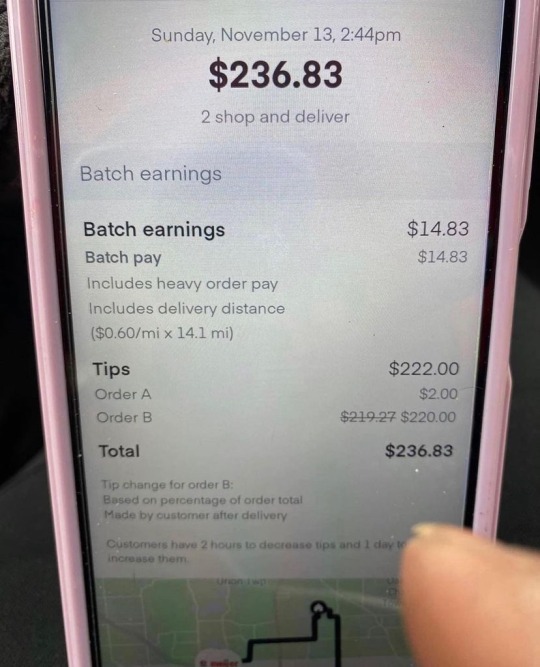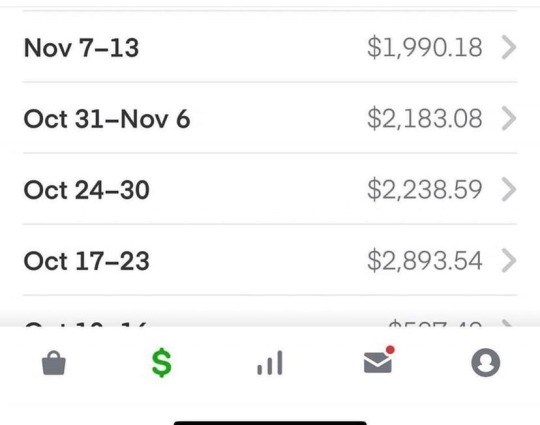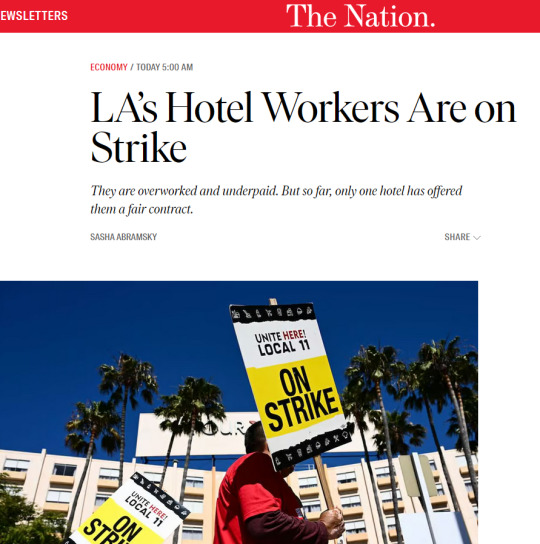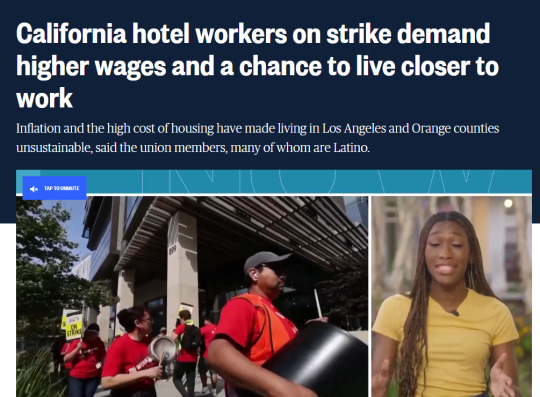#Gig workers
Explore tagged Tumblr posts
Text
Social activist Ramendra Kumar who is general secretary of the Delhi Shramik Sangathan, a federation of unorganised workers, says gig workers are slightly better treated than domestic workers because, while they may be excluded from public spaces, they do not have to enter homes and this spares them the worst humiliations. “What older Indians do immediately on meeting a maid, cook or cleaner is to ask their name. That tells them instantly both their caste and religion so that Hindus can then exclude certain people, from, say, working in the kitchen because of caste purity” Kumar said. “India is the most stratified and divided society in the world and even new areas of the economy, such as gig workers, are not exempt from the old attitudes that affect traditional workers like maids and cooks which divide us Indians. These people want gig workers to deliver what they want but don’t want to see them or hear them.”
Amrit Dhillon, ‘Delivering discrimination? India’s gig workers see access denied by class divide’, South China Morning Post
#South China Morning Post#Amrit Dhillon#India#Ramendra Kumar#Delhi Shramik Sangathan#gig workers#domestic workers#casteism#communalism#segregation
45 notes
·
View notes
Text
The US Department of Labor (DOL) published a final rule to the Federal Register on Wednesday that would increase the difficulty of classifying workers as independent contractors. If the rule survives court challenges unscathed, it will replace a business-friendly Trump-era regulation that did the opposite. It’s scheduled to go into effect on March 11. The new rule, first proposed in 2022, could have profound implications for companies like Uber and DoorDash that rely heavily on gig workers. It would mandate that workers who are “economically dependent” on a company be considered employees. The rule restores a pre-Trump precedent of using six factors to determine workers’ classification. These include their opportunity for profit or loss, the financial stake and nature of resources the worker has invested in the work, the work relationship’s permanence, the employer’s degree of control over the person’s work, how essential the person’s work is to the employer’s business and the worker’s skill and initiative.
130 notes
·
View notes
Video
tumblr
an important factor to remember in the writers strike. So many industries want to turn the worker into a gig worker with no protections and no mentoring system.
#tiktok#WGA#mentor#gig economy#gig labor#gig workers#workers rights#workers vs capital#union workers#workers#skilled labor#labor rights#capital vs labor#labor vs capital#labor#training#writers strike#labor strike#strike#IP#copyright
320 notes
·
View notes
Text
Across New York City, delivery drivers are a ubiquitous sight: congregating outside big restaurant chains waiting to collect orders, zooming through the city streets with orders in tow. “The most chaotic time for deliveries is easily during lunch time,” says Elijah Williams, who delivers food for both Uber and DoorDash. “I’ve had up to four orders at one time.”
Mayor Eric Adams recently announced a major change that will deeply impact busy workers like Williams: app-based delivery workers will be paid $17.96 an hour starting July 12th — and nearly $20 an hour by 2025 — marking the nation’s first minimum pay for such workers.
“Our delivery workers have consistently delivered for us — now, we are delivering for them,” he said. “They should not be delivering food to your household, if they can’t put food on the plate in their household.”
The Background
Mayor Adams made the announcement at City Hall, surrounded by delivery workers as well as members of the nonprofit organizations, Workers Justice Project (WJP) and Los Deliveristas Unidos.
Ligia Guallpa, executive director of WJP, expressed her excitement and gratitude.
“This first of its kind minimum pay rate will uplift working and immigrant families,” said [Ligia Guallpa of Workers Justice Project (WJP)] alongside Gustavo Ajche of Los Deliveristas Unidos. “[It will] ensure that workers who keep New Yorkers fed, are able to keep also their families fed too.”
WJP was founded in 2010, and coordinates numerous worker-led programs, including Los Deliveristas Unidos, that aim to improve conditions for low-wage immigrant workers across the five boroughs.
The Details
The current minimum wage in New York is $15 an hour. On average, service workers are paid $7.09 an hour, excluding tips. The new wage is in keeping with a law passed by the City Council in 2021, which requires the Department of Consumer and Worker Protection to set a standard minimum rate for delivery workers.
App-based delivery workers are classified as “independent contractors,” which means they’re not entitled to the standard minimum wage that applies to salaried employees’ pay. Instead, delivery workers who work for the big food delivery services, like Uber Eats and Relay, are entitled to just $2.13 an hour before tips — a so-called “tipped sub-minimum wage.”
Research has shown that getting rid of tipped sub-minimum wages benefits not just the workers getting the raise, but the economy as a whole. A 2021 analysis found that states without a tipped sub-minimum wage saw 29 percent growth in their leisure and hospitality sectors, compared to just six percent in states that used the federal tipped sub-minimum wage of $2.13.
...For many of the workers who face hostile roads and unpredictable weather conditions to get New Yorkers their ordered goods, this is a life-changing development.
“This is my full-time job. I get up every day and do this,” says delivery driver Justin Martinez outside the Chick-Fil-A in Washington Heights.
Martinez, 30, is originally from the Dominican Republic. His commitment to completing deliveries, he explains, is fueled by his love for his family.
“This is my way to contribute. I go out, 9, 10 hours a day, do deliveries, and then I can come home,” he says. Martinez first started driving for Uber in 2019 before transitioning to delivering food for Uber Eats and other apps in 2021. He’s excited for the pay wage increase: “Maybe now, I only [have to] go out for 6 hours.”
-via Reasons to Be Cheerful, June 30, 2023
#new york#new york city#nyc#uber#ubereats#delivery app#delivery driver#restaurants#minimum wage#labor#labor rights#united states#eric adams#gig workers#gig economy#income inequality#good news#hope
251 notes
·
View notes
Text
The B.C. government will guarantee new employment rights for ride-hailing and delivery drivers, including a minimum wage and WorkSafeBC coverage, Labour Minister Harry Bains said Wednesday. But the changes fall short of what’s needed, say some labour advocates, and will create a new underclass of employee. Harry Bains announced the province is going to introduce minimum working standards for drivers on apps like Uber, Lyft and DoorDash. The regulations, once finalized, would guarantee workers a slate of rights they don’t currently have. It would also designate them as employees under the province’s Employment Standards Act, giving them the right to join a union. But Bains said the government would also exclude them from protections other workers have under the act, including paid sick leave and vacation time. It also does not include a benefits plan — something the BC NDP promised gig workers in its 2020 election campaign.
Continue Reading.
Tagging: @politicsofcanada
51 notes
·
View notes
Text

#for real though#anything to make it easier to find the right place#instacart#back light numbers just catch the eye better#gig workers
68 notes
·
View notes
Text
After years of Greek, Roman and Byzantine histories, both in Podcast and Books, I took a step forward in time to Mike Duncan’s Revolutions podcast.
After 6 months of listening to the English, American, French, Spanish ReConquista of South America, Haitian and Mexican Revolutions, I have popped out bleary eyed and squinting into the 20th century’s 1920s.
I still have the Russian Revolution to go (and a few odd Cold War books) but I find myself missing the Ancient World.
#podcasts#mike duncan#revolutions podcast#mexican revolution#history#ancient history#rome#the french revolution was wild#i’ll be giving that another listen#english revolution#oliver cromwell#haitian revolution#voodoo#colombian revolution#simon bolivar#russian revolution#trade unionist#join a union#the worker#even in the 21st century#gig workers#the working class#there is no war other than class war#the dignity of basic human rights
3 notes
·
View notes
Text
65/100.
Finished my taxes! Submitted it yesterday.
Last time we talked, I was trying to figure out my business-use-of-home expenses for the pet boarding part of my business. It was making my head hurt trying to figure out how I should calculate this.
I finally decided I should treat pet boarding like a bed and breakfast for the purposes of filing taxes. So to that end, I had to figure out what percentage of my home I use for boarding and for what percentage of the time.
First I considered what percentage of my house is used for boarding. The thing is, all dogs and some cats have free range of the home 24 hours a day. That translates to 100% of the home 100% of the time. But I'm pretty sure that's not gonna fly for deducting business-use-of-home expenses. The CRA wants a "reasonable" prorating of the expenses.
So I thought about what parts of my house I actually use for boarding. Generally, I confine cats to one bedroom. Two cats from the same household stay together in the same room, so it's not one room per cat, it's one room per booking.
For dogs, even though they have free range, they generally follow me around the house, which means that during the day they rarely go upstairs at all. Mostly they are in the two rooms I use the most during the day: the living room and the kitchen. If I leave the house, I'm pretty sure they just nap in the living room the whole time I'm gone. At night, some dogs sleep in the living room, others follow me upstairs to my bedroom and sleep next to my bed. However, if cats are boarding in my room and can't coexist with dogs, then the dog is shut out of my bedroom and lopes back down to the living room, or sleeps outside the bedroom. At this point I was considering dogs as using half the house for calculating purposes.
But then I thought about the times I've had multiple dogs from different households boarding at the same time. Often they just all nap in the living room, but sometimes I have to physically separate them, especially during mealtimes. At those times, I generally either put up physical barriers, or I tether the dogs in different rooms, usually one in the kitchen and one in the living room. I also thought about the fact that I sometimes block off the living room or the kitchen in order to keep a boarding dog away from my own two cats. Furthermore, nobody really hangs out in the dining room, which separates the kitchen and living room. It's more of just a pass-through. So in the end, I decided to consider dogs as using one room per booking as well, as per cats.
I then had to figure out what percentage of my home "one room" constitutes. I didn't want to use square footage, because honestly then I'd have to measure and that would be a huge pain in the butt. But also because it doesn't really matter what size the rooms are, it's the doors and barriers that are important. So I mentally divided my house up into the usable rooms or areas for keeping pets separated, safe and comfortable. Upstairs there's three bedrooms. The bathroom doesn't count because I don't put pets in there. The main floor is open, no doors, but not "open-concept"--there are walls and doorways, so I am able to put up barriers. I considered the main floor as consisting of three rooms.
Now the basement, I mostly just use it for storage, and also I keep the basement door closed, so no one goes down there. However, in high-season when it's super busy with multiple bookings, I do use the basement bathroom as over-flow to house cats. And when it has been super super busy, I have had one cat in the bathroom and another cat outside of the bathroom. There are no rooms in the basement other than the bathroom and the tiny boiler room/washer & dryer nook, where I do NOT house cats. So essentially there are two spaces in the basement cats can be housed: in the bathroom, or outside the bathroom. So for pet boarding purposes, I consider this to be two rooms.
That makes 8 rooms in total: 3 upstairs, 3 on the main floor, and 2 in the basement.
So the portion of my house that a pet/two pets from the same household use when they board with me is 1/8.
Phew!
Next, I had to figure out what percentage of the time a pet uses 1/8th of my house. A pet uses their portion of the house 100% of the time they are staying with me, but I don't have pets staying with me 100% of the time. To figure this out, I needed to add up how many days of the year I had a pet staying with me. I'll walk you through that calculation in the next post.
#100 days of productivity#100dop#taxes#tax deductible#tax deductions#filing taxes#income tax#business use of home#business expense#home business#pet boarding#petsitting#dog sitting#dog boarding#cat sitting#cat boarding#side hustle#side gig#gig workers#canada revenue agency
3 notes
·
View notes
Text
#freelancing#freelance jobs#freelance#gig#gig workforce#gig economy#jobs#job#finished gig#gig workers
2 notes
·
View notes
Text
New One time payment, upgraded and updated instacart batch grabber!that will make you receive the highest payment batches available Get yours today only $300. Text: (843) 868-1406 it works for Android and IOS .


#instacart#washington#usa#shoppers#onlineshopping#gig workers#usa today#walmart#costco#amazon#grocery delivery#grocery store#grocery business#california#los angeles#store#indiana#oklahoma#wegmans#newyork
5 notes
·
View notes
Text
I have worked in the service industry - mainly hotel. & it's not just California (though I am glad for them striking). The service/hospitality industry is where people feel the most justified in treating you like shit. Because it's the 'most basic labor' that most people can do.
But they don't realize. When they can't cook or don't know how or don't want to - they have someone do it for them. Cleaning? You can have someone do it for you. Lawn care? Hire someone. Some place to sleep? A place is prepared & maintained for you.
Do you know what the pay is for *most* FOH (front of house) restaurant workers? $3-7/hr. Because they expect you to make the difference up with tips. Tips aren't wages. I'm going to say it again - tips aren't wages! There are days when business is slow & you still have bills. Or the fact most of the work is part time. & you have to overwork yourself with multiple shifts - if you're even able to get multiple shifts because places overstaff. Some places make you share tips. Or don't let you keep tips at all (it happens).
BOH (back of house) workers get paid $5-13/hr. & they're lucky if FOH shares tips with them (some places do. But again, tips are not wages). & again, most of those positions are part time & overstaffed.
In hotel, even the 5 Star ones. I have worked at a few 5 Stars - the pay is abysmal: $7.25-13/hr. A handful of hotels can go as high as $13.75-14/hr (if you're lucky). Most of those positions are part time, but due to Covid there's an employee shortage. So you'll get full time plus overtime, but at what cost?
FOH at hotel (desk clerk & concierge) typically don't get tips & most hotels frown on it. Meanwhile, BOH (bellhops, housekeeping & room service) get tips (if you're lucky). Some hotels have laundry as a separate department from housekeeping & they don't get tips at all. Spas are a separate entity even if they belong to the hotel & aren't a third party.
People also pay & treat service workers like shit because they believe it's work menial enough for young people to gain experience. Which also adds a layer of bias, "Young people are dumb & don't deserve nice things. They have to earn the right to be treated like a full fledged person by doing this "crappy job" first."
But then it feeds into, "That person is no longer young & still working that crappy job as an adult. Something MUST be wrong with them - dumb, lazy, drug addict, alcoholic, immature, etc."
((& more times than I can count. I have engaged with people who view service people outside of their place of work with as much fear & vitriol as they do homeless people. They flinch & eye you & keep their distance & won't make eye contact. You can almost see their skin crawl. Because in their mind - they're the same thing - people who don't deserve respect.))
& then it comes full circle to, "Ah, you're elderly & need money? Here's this easy job that anyone can do & it's respectable enough for you to do. It doesn't pay a lot. But you're old. What could you possibly need a whole lot of money for? You have a house right? Transportation? Surely, you're collecting SSI or something as your main income? Because you're old & should have your life figured out. Because we should only pay you enough for you to have petty cash - for bingo or something."
So, yes. hospitality workers in Cali SHOULD unionize. & continue to demand better pay & treatment. But so should hospitality & service workers everywhere.
& if you enjoy having hospitality & service workers to make your life easier - treat them with kindness. I don't care if they forgot to act chipper & smile. I don't care if they accidentally got your order wrong. I don't care if the front desk didn't state you're a double platinum rewards member & didn't offer you turn-down service.
TREAT. THEM. WITH. KINDNESS. & TIP THEM.
because i've not seen a lot of coverage on it, hotel workers in LA are on strike right now, too:

(x)

(x)


please remember to support these people as well!
#long post#long reads#service industry#hospitality industry#strike#California#united states#usa#union#hotel#teacher#educator#good#restaurant#five star#michelin#spa#gig workers#pay#labor#labour#wages#minimum wage#job#career#work
14K notes
·
View notes
Text
It's like a neverending menopausal hot flash
November 5 in the Appalachian foothills.

0 notes
Text
Gig workers have joined domestic helpers, cooks, nannies and drivers in suffering what many describe as second-class treatment by middle-class Indians, who like the services they provide but do not care to share the same spaces. Government estimates indicate that India has nearly 8 million gig workers, a number projected to soar past 23 million by 2029-30. The work is gruelling – poorly paid, tiring, and lacking security.
Amrit Dhillon, ‘Delivering discrimination? India’s gig workers see access denied by class divide’, South China Morning Post
1 note
·
View note
Text
Budget 2025: Empowering Gig Workers for Malaysia's Prosperous Future
By Shubham Saran, Director of Operations, foodpanda Malaysia This year’s Budget 2025, themed ‘Negara Makmur, Rakyat Sejahtera’ highlights the vital role the digital economy plays in Malaysia’s next phase of growth. The gig economy, including sectors like food delivery and quick commerce, has emerged as a key driver of this transformation. Gig workers, who are the backbone of these industries,…
0 notes
Text
Hiring full-time employees may not always be necessary, especially in the early stages of development. Gig workers and freelancers can be a more flexible and cost-effective solution. These workers can help you fill immediate needs, scale up quickly, or manage short-term projects without a long-term commitment.
Freelancers offer specialized skills on demand, allowing you to test the waters before making a full-time hire. Gigin can connect startups with highly skilled freelancers across various industries, saving you time and effort in recruitment. Explore freelancers on Gigin.
0 notes
Text
Condition of Gig workers in India
India’s Social Security Law defines gig workers are people who perform different tasks and earn money independently. Read more

1 note
·
View note